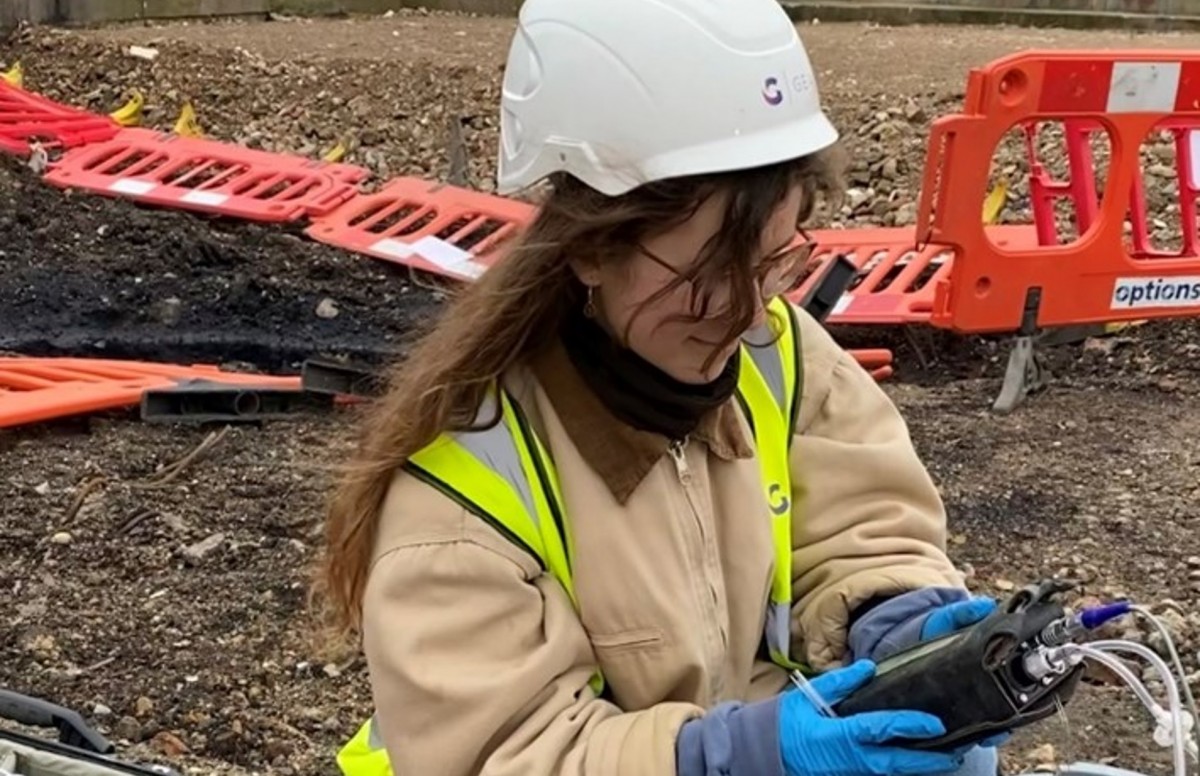8 Easy Facts About Geotheta Described
8 Easy Facts About Geotheta Described
Blog Article
Some Ideas on Geotheta You Should Know
Table of ContentsGeotheta Things To Know Before You BuyThe Single Strategy To Use For GeothetaThe 30-Second Trick For GeothetaSee This Report on GeothetaFacts About Geotheta Revealed

They carry out site investigations, gather examples, carry out lab examinations, and examine information to examine the suitability of the ground for building and construction jobs - Consulting Engineers. Based on their searchings for, geotechnical designers provide suggestions for structure design, incline security, keeping frameworks, and reduction of geotechnical risks. They team up with other specialists, such as architects, structural designers, and construction teams, to make sure that geotechnical considerations are integrated into the general task design and application
By examining the actions and buildings of dirt and rock, they can determine possible geotechnical hazards such as landslides, dirt negotiation, or slope instability. Their knowledge aids avoid failures or mishaps that could jeopardize lives and residential or commercial property. Below are some comprehensive tasks and duties of a geotechnical engineer: Website Investigation: Geotechnical designers conduct site investigations to gather information on subsurface problems.
They interpret the information to comprehend the buildings and habits of the dirt and rock, including their stamina, permeability, compaction features, and groundwater conditions. Geotechnical Evaluation and Style: Geotechnical engineers examine the information accumulated during website investigations to assess the stability and suitability of the website for building and construction jobs. They perform geotechnical estimations and modeling to examine aspects such as birthing ability, negotiation, incline stability, lateral earth pressures, and groundwater flow.
Some Known Factual Statements About Geotheta
Foundation Layout: Geotechnical engineers play a crucial role in making structures that can safely support the intended framework. They evaluate the dirt conditions and lots demands to figure out the appropriate foundation type, such as shallow structures (e.g., grounds), deep foundations (e.g (https://justpaste.it/ec966)., heaps), or specialized methods like soil enhancement. They consider variables such as negotiation limitations, bearing capacity, and soil-structure communication to develop optimal structure designs
They assess building and construction strategies, display site activities, and carry out area evaluations to confirm that the style suggestions are adhered to. If unpredicted geotechnical issues occur, they evaluate the circumstance and offer referrals for removal or adjustments to the style. Threat Evaluation and Mitigation: Geotechnical engineers analyze geotechnical dangers and threats connected with the task site, such as landslides, liquefaction, or dirt disintegration.

Cooperation and Communication: Geotechnical designers function closely with other experts included in a task, such as architects, structural engineers, and building and construction groups. Effective interaction and collaboration are necessary to incorporate geotechnical factors to consider right into the overall job design and construction process. Geotechnical engineers provide technological knowledge, solution questions, and make certain that geotechnical requirements are satisfied.
The Best Strategy To Use For Geotheta
Below are some kinds of geotechnical engineers: Structure Engineer: Foundation engineers focus on developing and evaluating foundations for frameworks. They analyze the soil problems, load demands, and site features to identify the most proper structure kind and layout, such as superficial structures, deep foundations, or specialized techniques like stack foundations.
They assess the elements influencing incline stability, such as soil residential properties, groundwater problems, and incline geometry, and develop approaches to protect against slope failings and reduce threats. Earthquake Engineer: Quake designers focus on evaluating and making frameworks to withstand seismic pressures. They analyze the seismic threat of a website, assess soil liquefaction potential, and create seismic layout requirements to make sure the security and strength of structures during quakes.
They perform field screening, accumulate examples, and analyze the collected data to characterize the soil homes, geologic formations, and groundwater problems at a website. Geotechnical Instrumentation Engineer: Geotechnical instrumentation designers concentrate on monitoring and gauging the actions of soil, rock, and structures. They mount and maintain instrumentation systems that keep an eye on factors such as soil settlement, groundwater degrees, slope motions, and architectural displacements to analyze efficiency and offer very early cautions of possible problems.
Geotheta Things To Know Before You Buy
They conduct examinations such as triaxial examinations, combination examinations, straight shear examinations, and leaks in the structure examinations to collect data for geotechnical evaluation and layout. Geosynthetics Designer: Geosynthetics designers specialize in the design and application of geosynthetic products, such as geotextiles, geogrids, and geomembranes. They use these materials to boost dirt stability, reinforce slopes, give water drainage remedies, and control disintegration.
They tend to be investigative people, which suggests they're intellectual, reflective, and analytical. They are interested, methodical, sensible, analytical, and rational. Some of them are also social, meaning they're kind, generous, cooperative, patient, caring, handy, empathetic, sensible, and pleasant - Consulting Engineer.
In the office setting, geotechnical designers utilize specialized software program devices to execute calculations, produce designs, and examine data. They prepare records, evaluation job specs, connect with clients and team members, and coordinate project activities. The workplace setup gives a favorable atmosphere for study, analysis, and partnership with various other professionals entailed in the job.
Some Known Details About Geotheta
They regularly go to project websites to carry out website investigations, evaluate you could check here geotechnical conditions, and collect data for evaluation. These visits include taking a trip to different areas, sometimes in remote or challenging terrains. Geotechnical designers may do soil tasting, conduct tests, and screen building activities to make certain that the geotechnical facets of the project are being applied correctly.
Geotechnical designers likewise work in specialized geotechnical labs. Geotechnical research laboratory designers function extensively in these atmospheres, managing testing devices, running instruments, and taping data.
Report this page